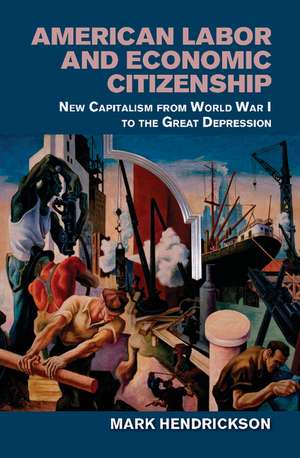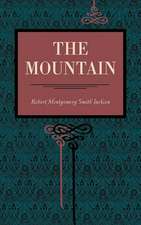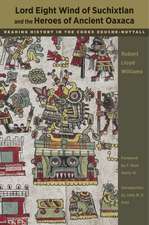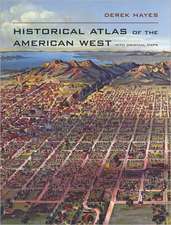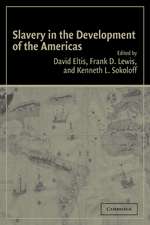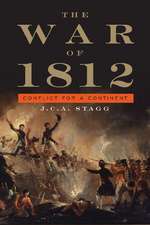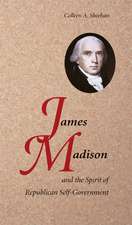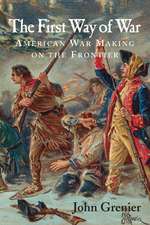American Labor and Economic Citizenship: New Capitalism from World War I to the Great Depression
Autor Mark Hendricksonen Limba Engleză Paperback – 17 iun 2015
| Toate formatele și edițiile | Preț | Express |
|---|---|---|
| Paperback (1) | 270.07 lei 6-8 săpt. | |
| Cambridge University Press – 17 iun 2015 | 270.07 lei 6-8 săpt. | |
| Hardback (1) | 727.26 lei 6-8 săpt. | |
| Cambridge University Press – 26 mai 2013 | 727.26 lei 6-8 săpt. |
Preț: 270.07 lei
Nou
Puncte Express: 405
Preț estimativ în valută:
51.68€ • 53.76$ • 42.67£
51.68€ • 53.76$ • 42.67£
Carte tipărită la comandă
Livrare economică 14-28 aprilie
Preluare comenzi: 021 569.72.76
Specificații
ISBN-13: 9781107559677
ISBN-10: 1107559677
Pagini: 338
Ilustrații: 3 b/w illus.
Dimensiuni: 151 x 228 x 18 mm
Greutate: 0.45 kg
Editura: Cambridge University Press
Colecția Cambridge University Press
Locul publicării:New York, United States
ISBN-10: 1107559677
Pagini: 338
Ilustrații: 3 b/w illus.
Dimensiuni: 151 x 228 x 18 mm
Greutate: 0.45 kg
Editura: Cambridge University Press
Colecția Cambridge University Press
Locul publicării:New York, United States
Cuprins
Introduction; 1. 'Hoovering' in the twenties: efficiency, wages, and growth in the 'new economic system'; 2. Wages and the public interest: economists and the wage questions in the new era; 3. Enlightened labor? Labor's share and economic stability; 4. A new capitalism? Interrogating employers' efforts to cultivate a 'feeling of partnership' in industry; 5. Gender research as labor activism: the women's bureau in the new era; 6. The new 'Negro problem'; 7. Promising problems: working toward a reconstructed understanding of the African American and Mexican worker; Conclusion.
Recenzii
'Mark Hendrickson has crafted an important narrative that explains how early twentieth-century American business leaders, social scientists, and political activists worked to regulate, stabilize, and strengthen a newly configured national economy. He demonstrates how their efforts were ironically paralleled by the emerging resistance of marginalized and underrepresented groups (women, African Americans, and Mexican Americans) to the worst excesses of an economic system that, while possessed of many virtues, also subsisted on inequality and injustice.' Michael A. Bernstein, Tulane University, Louisiana
'Mark Hendrickson breathes new life into the history of the 1920s, showing that economic life in the Jazz Age was far more contested than previously imagined. As economists, politicians, union leaders, and advocates for African-American and Mexican-American workers grappled with an emerging consumer society, debates over economic knowledge became struggles over the terms of American citizenship itself. Brilliantly combining political economy and social history, American Labor and Economic Citizenship is a model of the most exciting new scholarship on the political history of capitalism in American life.' Christopher Capozzola, Massachusetts Institute of Technology
'Mark Hendrickson sharpens our understanding of the effort to rethink the place of workers in an increasingly consumer-oriented economy in the 1920s. As American Labor and Economic Citizenship shows, experts from an array of institutions championed research that challenged Hoover-era assumptions about the ability of growth to ease labor conflict, particularly for a labor force increasingly divided by race and gender. Ambitious and sophisticated, Hendrickson's work will revise our thinking on questions ranging from the influence of expertise in policy making to the continuing struggle for full economic citizenship.' Andrew Morris, Union College, New York
'A significant contribution to our understanding of how the 1920s fit into the construction of the liberal social contract in the United States. An enduring achievement.' Kathryn Kish Sklar, State University of New York, Binghamton
'Hendrickson brings the players and their organizations together in a comprehensive, well-organized, and readable account. He also shows that, despite their common acceptance of the power of inquiry and analysis, 'new era' experts came to sharply different conclusions regarding the ability of capital and markets to balance production and consumption and to distribute appropriately the rewards from productivity gains.' The Journal of American History
'Hendrickson's book provides valuable insight into the modestly ameliorative consequences of empirical inquiry in government, academia, and nonprofit foundations that aspired to impartiality.' Alexander J. Field, The American Historical Review
'Mark Hendrickson breathes new life into the history of the 1920s, showing that economic life in the Jazz Age was far more contested than previously imagined. As economists, politicians, union leaders, and advocates for African-American and Mexican-American workers grappled with an emerging consumer society, debates over economic knowledge became struggles over the terms of American citizenship itself. Brilliantly combining political economy and social history, American Labor and Economic Citizenship is a model of the most exciting new scholarship on the political history of capitalism in American life.' Christopher Capozzola, Massachusetts Institute of Technology
'Mark Hendrickson sharpens our understanding of the effort to rethink the place of workers in an increasingly consumer-oriented economy in the 1920s. As American Labor and Economic Citizenship shows, experts from an array of institutions championed research that challenged Hoover-era assumptions about the ability of growth to ease labor conflict, particularly for a labor force increasingly divided by race and gender. Ambitious and sophisticated, Hendrickson's work will revise our thinking on questions ranging from the influence of expertise in policy making to the continuing struggle for full economic citizenship.' Andrew Morris, Union College, New York
'A significant contribution to our understanding of how the 1920s fit into the construction of the liberal social contract in the United States. An enduring achievement.' Kathryn Kish Sklar, State University of New York, Binghamton
'Hendrickson brings the players and their organizations together in a comprehensive, well-organized, and readable account. He also shows that, despite their common acceptance of the power of inquiry and analysis, 'new era' experts came to sharply different conclusions regarding the ability of capital and markets to balance production and consumption and to distribute appropriately the rewards from productivity gains.' The Journal of American History
'Hendrickson's book provides valuable insight into the modestly ameliorative consequences of empirical inquiry in government, academia, and nonprofit foundations that aspired to impartiality.' Alexander J. Field, The American Historical Review
Notă biografică
Descriere
This book argues that the period from World War I to the Great Depression was an incubating era when innovative and lasting policy paradigms emerged.
